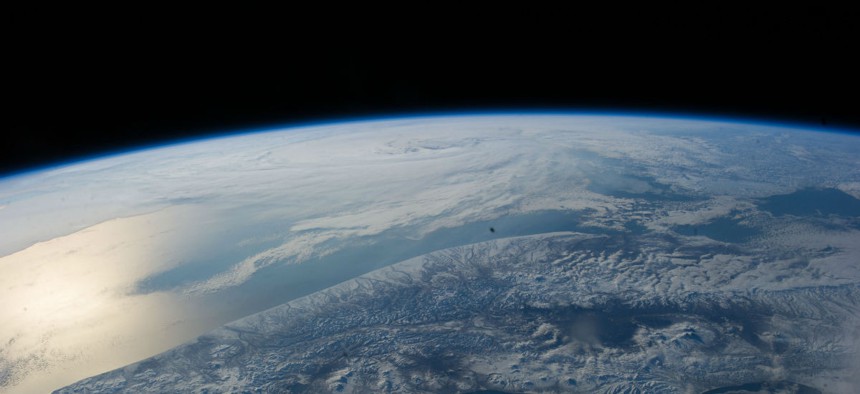
NASA
The World is Quickly Running Out of Water, New NASA Study Says
Researchers found that over the decade-long study of the 37 major aquifers worldwide, 21 experienced a depletion of their water supply.
The world is losing groundwater, fast.
That is the conclusion of a new study published by researchers at NASA, which drew on satellite data to quantify the stresses on aquifers. The researchers found that over the decade-long study of the 37 major aquifers worldwide, 21 experienced a depletion of their water supply. Especially alarming was the study’s finding that the Indus Basin aquifer, which supplies much of India’s water supply, has depleted rapidly.
“The potential consequences are pretty scary,” NASA scientist Matthew Roddell, a lead author of the study, tells Quartz. “At some point those aquifers might run dry.”
To measure the water level changes, the researchers studied the gravitational orbit of NASA’s Gravity Recovery and Climate Experiment (GRACE) satellite caused by the shifting of earth’s mass. Because water is one of the larger and constantly shifting masses on earth, this allowed them to measure changes to groundwater supplies.
The researchers found that California’s Central Valley aquifer was the most depleted of all aquifers in the US, because Californians have relied more heavily on drawing groundwater as rain water has dissipated during California’s long drought.
While the study detected the change in groundwater levels, it could not quantify the amount of water remaining in the aquifers. Rodell said this would require drilling into the aquifers themselves, which he supports doing. “We should be monitoring and quantifying how much water is in these aquifers like we do with oil,” he says.
Preserving water in aquifers is especially problematic in agricultural areas like India, which relies heavily on water-intensive rice farming. According to Rodell, over 68% of our water supply is used for agriculture. But unlike, say, water used to cool a power plant, water used in agriculture is not recyclable, Rodell explains. “The people who are using the water don’t necessarily recognize that it will ever run out. It is used as a resource that will last forever,” Rodell says. If we continue with our current consumption practices, hesays,”these people and those farmers that rely on that water won’t have it anymore.”






